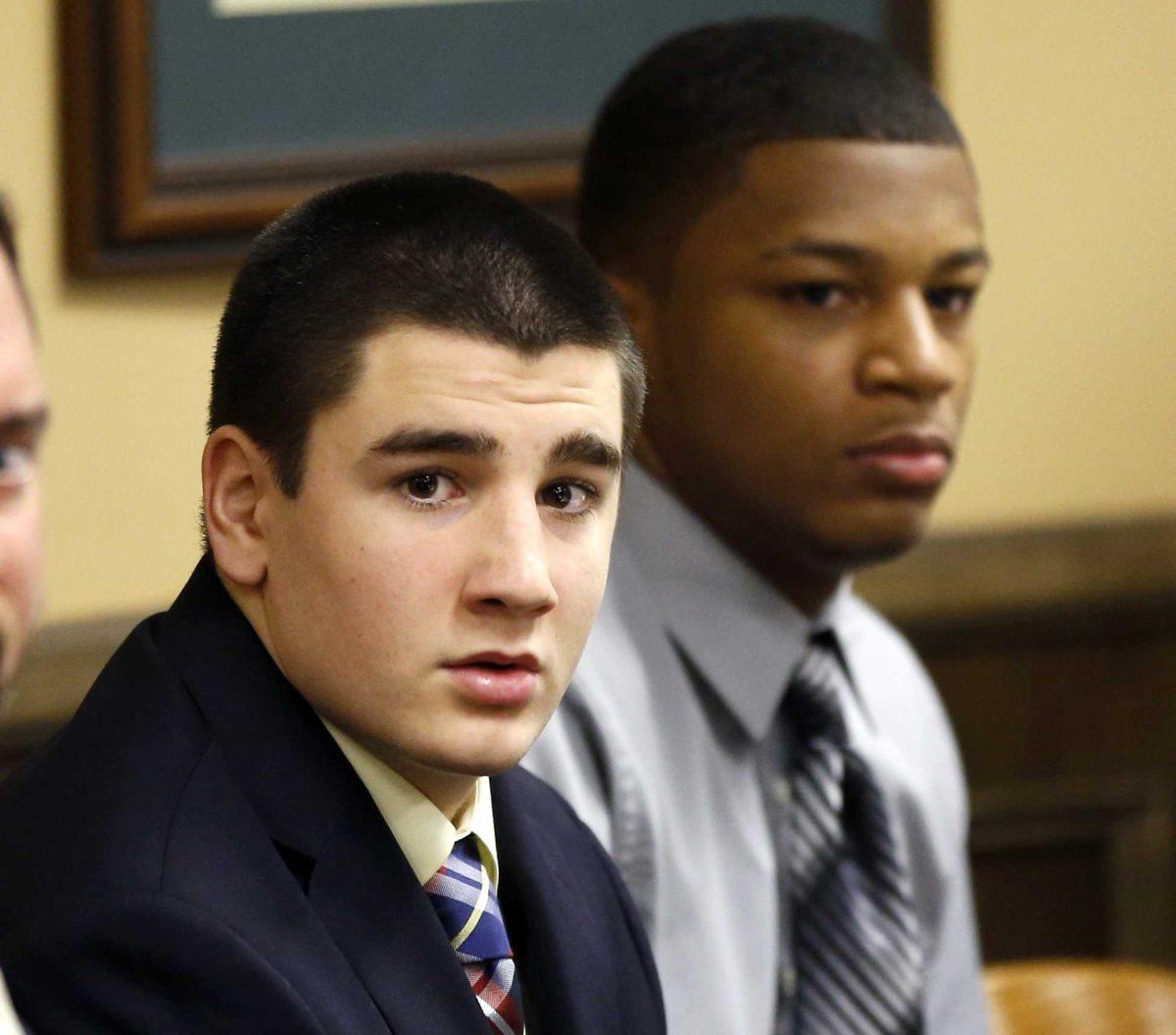I’ve been trying to figure out how to approach this for a while now.
Last Sunday in Steubenville, Ohio, 17-year-old Trent Mays and 16-year-old Ma’lik Richmond were found delinquent — the equivalent of guilty in juvenile cases — concerning the August rape of an unnamed 16-year-old girl.
With each new piece of evidence I read, I feel some overwhelming sense of disappointment swelling up like a balloon in my stomach. I can feel its nauseating lightness, its hollowness.
“What if that was your daughter?” a boy asks in one video of the act.
“But it isn’t,” another teen replies.
“What if it was?” the friend persists.
“If that was my daughter, I wouldn’t care. I’d just let her be dead.”
I think I’m going to be sick. Then, for an instant, I almost pity Richmond and Mays.
I know it’s far-fetched, probably even wrong. In fact, major news outlets — but predominantly CNN — have been criticized recently for portraying the two boys in an overly sympathetic light.
They called them “star football players” and “good students” and talked about their once “promising futures.”
“Are we supposed to feel bad for these two juveniles who disgustingly took advantage of a girl’s drunkenness and circulated the humiliating photographic and video proof?” critics asked.
I read a text written by Trent Mays: “Yeah dude, she was like a dead body. I just needed some sexual attention.”
I feel sick again.
Mays and Richmond deserve the punishment handed down to them — I have no doubt about it. If anything, their sentences are lenient compared to what they would have received as adults.
A minimum of one and two years in a juvenile correction facility for Richmond and Mays, respectively?
That’s it? For rape?
How can I even begin to feel bad for them?
Maybe it’s not that I feel bad for the boys, but that I just feel bad in general. It is, after all, a dismal situation — an economically depressed Ohio town, two teens who betrayed not only themselves but in a horrendous act violated a girl’s trust and body.
Can’t I be just a little sad we don’t live in a perfect world?
I see there’s a petition circling right now asking CNN to apologize for its coverage of the case.
“I won’t sign,” I think.
CNN, in its misguided way, tried to magnify the tragedy by continually emphasizing that all important roles were played by children. As depressing as that is, it doesn’t make me upset with CNN.
Furthermore, I can’t fault them much for leaving out most of the victim’s story.
What do you want to be told, the truth? Do you need CNN to tell you she might experience random bouts of rage or uncontrollable crying, never quite sure when they’ll begin, why or how to stop them?
Should they have mentioned that she might experience trust issues for the rest of her life? That she’ll probably transfer schools to escape the “dead girl” moniker? That this girl would rather slip into anonymity than chance being recognized someday by a future employer or boyfriend as the Steubenville rape girl?
Or maybe CNN should have said some people will begin to view her as tarnished, devalued, and one day — just maybe — she might begin to believe that false assumption too?
CNN doesn’t talk about the victim because they know nearly nothing about her, as it should be. She’s already receiving death threats and any further publicity could only harm her.
Their choice to focus instead on the legal ramifications the rapists will face seems more appropriate. Despite sounding sad, it doesn’t lament their crumbling futures, but reminds the world we will hold rapists accountable for their actions, and no one — not local law enforcement, not high school pals, not esteemed football coaches — will impede justice and stop their crimes from following them the rest of their life.
If you think CNN mishandled its coverage of the Steubenville case, don’t waste your energy signing a petition. Make sure those around you — because nearly a quarter of all female university students will report an attempted or completed rape within their college career, according to Campus Safety Magazine — know the repercussions for victims and assailants.
Make sure everyone knows that “no” means “no,” but the inability to answer or physically resist sexual advances can mean no, too.
Let everyone know that you don’t think it’s “all in fun,” and hold every one accountable — even your friends.






